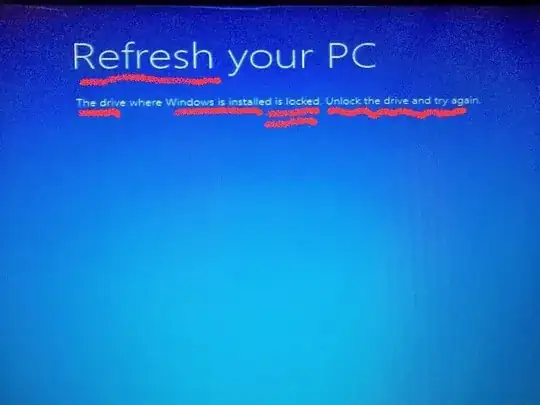HP Proliant Microserver Gen8; Server 2012 R2; Three 1TB SATA Harddrives, two arrays: 1 Raid 0 OS drive, 2 Raid 1 Data drives
"The drive where Windows is installed is locked. Unlock the drive and try again."
I came into the office on a Monday morning to that message.
This Screen (from Ideaz):

Command takes me to X: drive, and cannot access C:
Also, from command line - Diskpart list vol, disk, part all reported no drives, volumes or partitions.
HP ACU (Array Configuration Utility) reported 100% disk space used on both arrays. Raid Controller Log showed no HD errors or controller errors or cache errors, etc. Clean log.
I was afraid we had lost everything. After 2.5 hours on my own, and 2.5 hours with HP tech support, we found the answer.